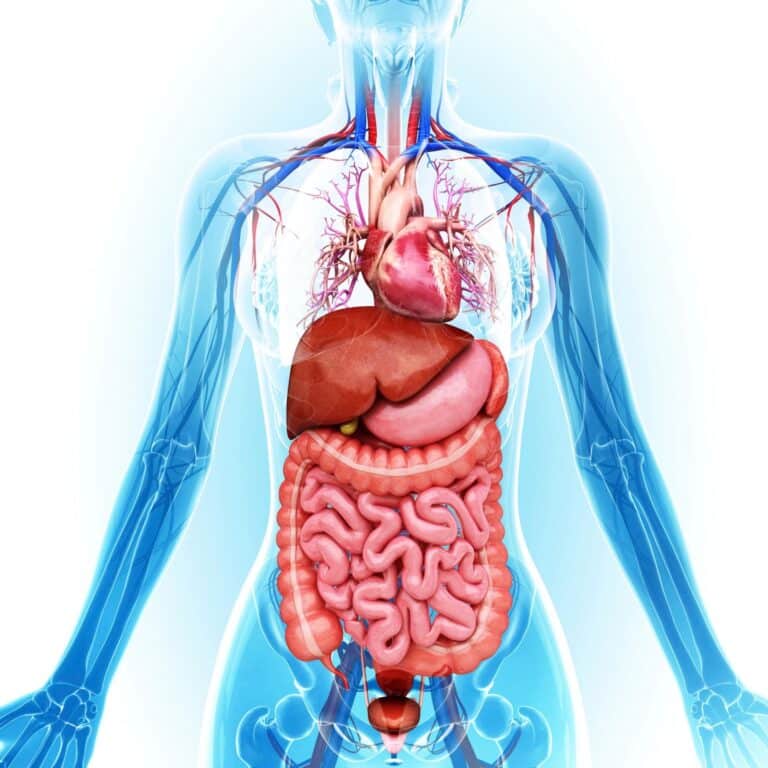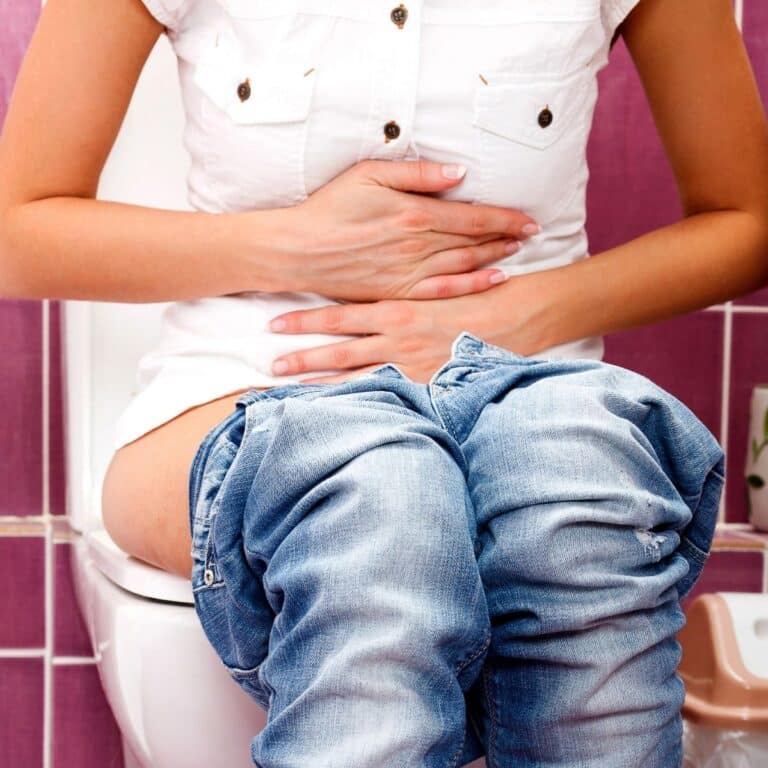Can Alcoholism Cause Chronic Kidney Failure?
As a beacon of light to those in the shadows of addiction, you understand the power of knowledge. Whether you're current drinkers or have decided to go with abstinence from alcohol, this information can be a valuable asset if you have chronic kidney disease or kidney issues.
You might know that overindulging in alcohol can harm the liver, but it's also crucial to recognize its impact on the kidneys. When you drink excessively, you're not just challenging your self-control, you are also putting your kidney function at risk.

Chronic alcohol abuse can lead to both acute and chronic kidney problems, including the potential for kidney failure. By informing yourself and others about these risks, you play a vital role in preventing the silent progression of kidney damage.
So, as you reach out to help, keep in mind that advocating for moderation could be the key to safeguarding vital organs and maintaining overall health.
Key Takeaways
- Excessive alcohol consumption, especially chronic alcohol abuse, heavy drinking, and binge drinking, can worsen kidney disease and increase the risk of acute kidney failure.
- Alcohol affects kidney function by disrupting the regulation of fluid and electrolytes, causing dehydration, and impacting hormone balance.
- Chronic drinking contributes to liver disease, which adds to the kidneys' workload and impairs their ability to filter blood effectively.
- People with kidney disease should be cautious with alcohol consumption, as it can interact with medications, elevate blood pressure, and affect fluid restriction diets.
For More Recipes and Ideas --->> Get Your Free Meals and Recipes That Are Perfect for Pre-Dialysis Diets, Pre-Dialysis with Diabetes, or Dialysis Diets.
Understanding Kidney Functions
Your kidneys are multifunctional organs, responsible for filtering waste, balancing electrolytes, and managing blood pressure. Central to kidney function is the glomerular filtration rate (GFR), an essential parameter reflecting the kidneys' ability to purify blood. The GFR indicates how well your kidneys are filtering. A decline in GFR is a harbinger of compromised kidney efficiency, which may necessitate clinical intervention.
The function of the kidneys is paramount in maintaining homeostasis. They perform an important role in excretion metabolites and toxins via urine while retaining vital substances like proteins and glucose. The kidneys' intricate network of nephrons filters blood at microscopic levels, ensuring that substances necessary for health are reabsorbed into the bloodstream.
You must be aware that any condition impairing the kidneys' ability to perform these functions can lead to systemic disturbances. For those serving patients with renal challenges, understanding the nuances of kidney pathology is critical.
A profound grasp of nephrology ensures that you can guide those in your care towards optimal management of their condition, preserving kidney function and enhancing quality of life.
Alcohol's Kidney Impact
In drinking heavily over time, you're increasing your risk of kidney damage and potential failure. Excessive alcohol consumption is a significant risk factor for both acute kidney injury and chronic kidney disease. You need to understand alcohol's effects on kidney health to effectively serve those at risk.
Here's how alcohol impacts the kidneys:
- Altered Filtration: Alcohol can cause changes in the glomerular filtration rate, which is how your kidneys filter waste from the blood.
- Electrolyte Imbalance: It disrupts the balance of electrolytes, such as sodium and potassium, which are crucial for normal kidney function.
- Dehydration Risk: Alcohol acts as a diuretic, leading to dehydration that can precipitate acute kidney injury.
- Hypertension Development: Chronic consumption often leads to hypertension, a primary contributor to the risk of chronic kidney disease.
As someone who desires to help others, it's vital to convey that moderation is key. Informing those you serve about the dangers of heavy drinking and advocating for regular screening and monitoring of kidney function can prevent long-term consequences.
Encourage a reduction in alcohol intake as part of a comprehensive approach to maintaining optimal kidney health.

Alcohol and Liver Connections
Beyond impacting your kidneys, alcohol can severely damage your liver, which in turn exacerbates kidney dysfunction. Chronic alcohol use is a direct cause of liver disease, including conditions like alcoholic hepatitis and cirrhosis of the liver. When you consume alcohol excessively, you're not only burdening your liver with toxins but also creating a cascade of negative effects on your renal system.
The alcohol and liver connections are complex and interdependent. The liver's role is to metabolize and detoxify substances, including alcohol. However, with persistent alcohol abuse, the liver becomes inflamed, this condition is known as alcoholic hepatitis.
If consumption continues unabated, the inflammation can lead to scarring, known as cirrhosis. This scarring impairs liver function, leading to a buildup of toxins and a reduction in the production of proteins that help regulate blood clotting and fluid balance.
This impaired liver function can put additional strain on your kidneys. They must work harder to filter out the increased levels of toxins in the blood, raising the risk of alcohol-related kidney damage. It's crucial to understand these interconnections to effectively prevent and address the dual challenges of liver disease and kidney dysfunction in those you serve.
Risks for Vulnerable Groups
Certain groups should watch out for the heightened risks of kidney failure due to alcoholism, as it can be especially harmful to your health. As you strive to serve those in need, it's critical to understand that excessive drinking, including alcohol use disorder, chronic drinking, and heavy alcohol consumption, poses significant risks for kidney problems in certain populations.
Consider these vulnerable groups:
- Individuals with pre-existing kidney conditions: Chronic drinking can exacerbate renal insufficiency, accelerating the progression to end-stage renal disease.
- Diabetics: Alcohol use disorder in diabetics can interfere with glucose control, contributing to nephropathy and increasing the risk of kidney failure.
- Elderly individuals: They typically have a reduced glomerular filtration rate, and heavy alcohol consumption can further impair renal function.
- Those with a family history of kidney disease: Chronic drinking may hasten the onset of kidney problems in genetically predisposed individuals.
For those with a strong desire to aid others, recognizing and addressing these risks is paramount. Encourage moderation and provide support for those grappling with alcohol use disorder, as continual heavy consumption is a modifiable risk factor for renal health complications.
Safe Drinking Recommendations for Alcohol in Moderation
You should be aware that while moderate drinking may not directly cause kidney failure, adhering to recommended guidelines is essential for protecting your kidney health. Safe drinking recommendations are grounded in clinical evidence indicating that moderate drinking, up to one alcoholic drinks per day for women and two for men, minimizes the risk of adverse health effects. One standard drink typically comprises 14 grams of pure alcohol, equivalent to 12 ounces of beer, five ounces of wine, or 1.5 ounces of distilled spirits.
It's imperative to understand that excessive alcohol use, characterized by the consumption of large quantities in a short period or continued heavy drinking over time, can precipitate a cascade of negative health outcomes, including kidney damage.
Chronic alcohol intake is a modifiable risk factor for the development of hypertension, a critical contributor to chronic kidney disease. Therefore, maintaining alcohol intake within safe parameters not only supports overall well-being but specifically safeguards renal function.
For those in the healthcare field or supporting others with health challenges, it's crucial to communicate these guidelines effectively. Encourage moderation and emphasize that even seemingly innocuous increments in alcohol intake can lead to significant health complications.

Effects of Alcohol on Kidney Health
Excessive drinking can severely impact your kidney's ability to function properly. When you indulge in heavy alcohol use, you're not just affecting your liver, your kidneys are also at risk. These vital organs are responsible for filtering harmful substances from the blood, and excess alcohol consumption can compromise this essential process.
Here's how your drinking habits could be putting your kidneys in danger:
- Increased Risk of Kidney Stones: Chronic dehydration from excess alcohol leads to the concentration of minerals in your urine, which can precipitate the formation of kidney stones.
- Development of Acute Kidney Failure: A single episode of binge drinking may cause acute kidney failure, a serious condition that necessitates immediate medical intervention.
- Exacerbation of Chronic Kidney Disease: Prolonged heavy alcohol use can double the risk of chronic kidney disease, as it raises blood pressure and contributes to the damage of kidney filters.
- Introduction of Toxins: Alcohol breaks down into toxic byproducts that can harm kidney tissues, exacerbating the workload on your kidneys as they attempt to filter out these harmful substances.
Precautions for Kidney Patients
Regarding alcohol consumption, if you're managing kidney disease, it's essential to take specific precautions to protect your renal health. Alcohol has the potential to exacerbate renal disease, leading to serious health problems. If you've experienced the first signs of kidney damage, it's critical to moderate your alcohol intake or abstain entirely, as alcohol can impair your kidneys' ability to regulate fluid and electrolytes, causing excess water to accumulate in your body.
If you're on the path to a kidney transplant, maintaining optimal kidney function is paramount. Alcohol can interfere with medications and may impact post-transplant recovery. It's advisable to discuss your individual risk factors with a healthcare professional to determine a safe level of alcohol consumption tailored to your condition.
Moreover, for those with kidney disease, it's vital to recognize that alcohol can elevate blood pressure, a risk factor for further renal impairment. By taking these precautions, you not only safeguard your kidneys but also contribute to the overall well-being of individuals relying on your guidance and support.
Indirect Kidney Damage Factors
Understanding how drinking affects your body is crucial, as alcoholism can indirectly damage your kidneys by exacerbating existing liver conditions, leading to a harmful domino effect on renal health. When you engage in regular heavy drinking, you're not just risking liver damage, but you're also setting the stage for potential kidney dysfunction. Here's how:
- High Blood Pressure: Chronic alcohol consumption is a known risk factor for hypertension, a condition that places undue strain on the renal vasculature, impairing glomerular filtration rates and contributing to nephrosclerosis.
- Liver Damage: Heavy drinkers often develop hepatic pathologies such as cirrhosis, which can lead to hepatorenal syndrome, a life-threatening medical condition characterized by rapid renal failure in the context of severe liver disease.
- Cardiovascular Diseases: Alcoholism is associated with a spectrum of cardiovascular disorders, which can decrease renal perfusion and potentiate ischemic injuries to the nephrons.
- Systemic Effects: The systemic consequences of alcohol abuse, such as electrolyte imbalances and acid-base disturbances, can disrupt the delicate homeostasis maintained by the kidneys, ultimately compromising renal function.
As someone dedicated to aiding others, it's imperative to understand these mechanisms and provide guidance on the risks of alcohol abuse to protect against kidney damage and ensure holistic health management.
FAQs for Alcoholism and Chronic Kidney Failure
You're asking if there's a way to distinguish alcohol-induced kidney failure from other causes.
Yes, doctors can often differentiate based on your drinking history, liver function tests, and signs of chronic liver disease. They'll check for specific markers in blood and urine tests.
It's crucial to be upfront about your alcohol use, as this information can guide appropriate diagnostic evaluations and tailor treatment strategies to manage your kidney health effectively.
You're inquiring whether specific alcoholic drinks are worse for your kidneys. Current evidence suggests the alcohol content matters more than the type of beverage. It's the quantity and frequency of consumption that pose the greatest risk.
However, all forms of alcohol can harm kidney function when consumed in excess. It's essential to monitor intake and prioritize moderation to mitigate potential kidney damage.
You're tackling how diabetes and alcoholism together influence kidney failure risk. It's crucial to know that this combo heightens the progression rate, and affects your blood sugar levels.
Alcoholism alone can double chronic kidney disease risk, and when paired with diabetes, the threat escalates. Both conditions strain your kidneys, potentially speeding up failure.
You must monitor both carefully, as their interaction can severely impair kidney function and accelerate the path to dialysis or even transplant necessity.
To protect your kidneys from alcohol-related damage, there are several steps you can take.
First, adopt a diet that is rich in fruits, vegetables, and whole grains. These foods provide important nutrients and antioxidants that can support kidney health.
Second, it's important to limit foods that are high in sodium, cholesterol, and trans fats. These substances can contribute to kidney damage and should be avoided or consumed in moderation.
Third, staying hydrated is crucial. Make sure to drink plenty of water, and avoid alcohol as it can dehydrate the body and put extra strain on the kidneys.
You may want to consider taking supplements such as omega-3 fatty acids and antioxidants. However, it's important to consult with your doctor before starting any new supplements to ensure they are safe and appropriate for you.
Alcoholism and Chronic Kidney Failure
Your kidneys are vital for filtering waste, and alcohol can significantly impair this function. Chronic alcohol consumption increases the risk of both acute and chronic kidney disease.
It's crucial to adhere to safe drinking guidelines to protect renal health. If you have pre-existing kidney conditions, even moderate alcohol intake could exacerbate your risk.
Prioritize your kidneys' well-being by moderating alcohol consumption or considering abstinence to prevent irreversible damage. Feel free to talk to medical professionals if you have any questions about the consumption of alcohol or alcohol consumption on kidney function.













